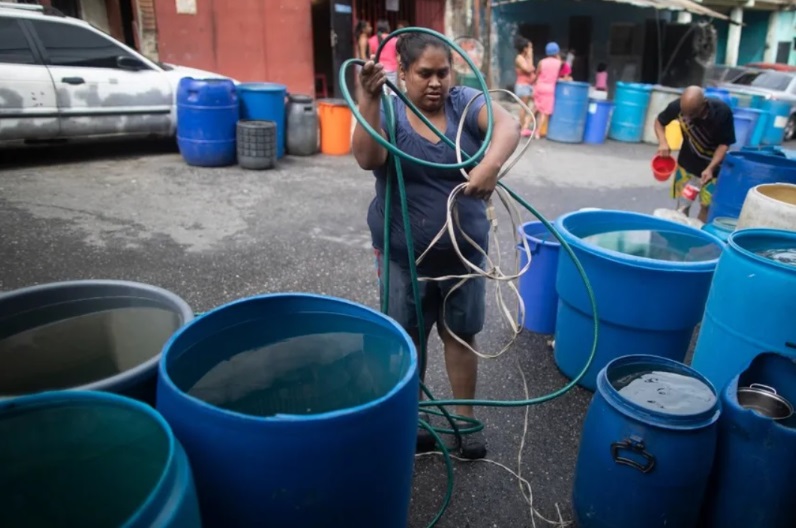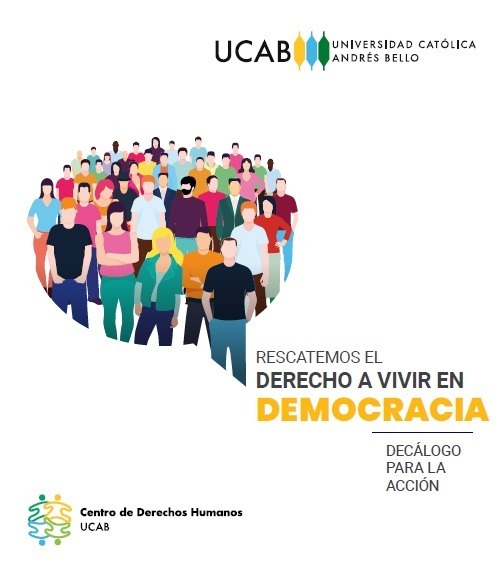The extradition from Cape Verde to the United States of Colombian businessman Alex Saab, contractor and agent of the Nicolás Maduro government, brought about a foreseeable reaction from the Venezuelan authorities. On October 16, a few hours after it became known that Saab would face the charge of money laundering for which he was wanted, six executives of Citgo Petroleum Corporation (five of them US citizens) were sent back to a prison cell in Venezuela and the Maduro government announced the suspension of its participation in the round of negotiation with the opposition in Mexico.
The fourth round of meetings was expected for that weekend, including the discussion of key issues. The Unitary Platform – which brings together the opposition – had planned to bring to the table the situation of the infamous Venezuelan justice system and the political prisoners. Maduro’s delegation was expected to raise the issue of the Venezuelan assets abroad, which are in the hands of the so-called interim government.
The meeting looked challenging for the Maduro government after the recent death of General Raúl Isaías Baduel in prison, under unclear circumstances and in violation of his fundamental rights, which confirmed the recounts about the conditions of political prisoners in Venezuela. The senior official, who played a leading role in helping former President Hugo Chávez regain power in April 2002, spent the last 12 years of his life behind bars.
However, Saab’s extradition overshadowed this and other emergencies in the country, such as the activation of the National Board for Social Care, agreed upon on September 6. This instance would be in charge of articulating actions in the field of healthcare, nutrition, and COVID-19 response. Maduro’s reaction confirms that he is not interested in the underlying problem, the deep crisis that afflicts Venezuela, which neither he nor his allies will be able to solve without agreements with their adversaries.
Saab, 49, was brought before a Miami judge on October 18 on one count of conspiracy to commit money laundering and seven counts of money laundering. According to the indictment, Saab and his business partner Álvaro Pulido Vargas committed the crimes between 2011 and 2015.
The indictment maintains that both men received contracts to build houses in Venezuela that never came to be, and met in Miami with other accomplices to plan bribes to Venezuelan officials from the customs and tax administration service, the National Guard, and the foreign exchange control commission. The accusation also speaks of seven money transfers that entered the United States banking system, ranging from $ 10,915 to $ 100,000.
As of 2015, several irregularities regarding Saab’s businesses had already been reported in investigation articles by the Venezuelan news site armando.info. One of them involves his participation in the import of food products of dubious quality that were distributed in boxes by the Local Supply and Production Committees (CLAP). Several journalists from the independent news site have been in exile since 2018 after being sued by Saab.
Saab was also sanctioned by the US Treasury, which linked him to a corruption ring that involves dummy companies, the laundering of hundreds of millions of dollars, and three of Maduro’s stepchildren. Saab had been investigated in Colombia, Ecuador, and Mexico. However, he became a sort of “super minister” in the Maduro government, which, paradoxically, avoided him in public.
Everything changed in June 2020 when Saab was arrested in Cape Verde for the investigation opened in Florida. That year, he had been appointed a “plenipotentiary ambassador to Africa,” according to his own website. In September he was appointed a member of the government delegation at the Mexico negotiation. A public campaign in his defense highlighted his “revolutionary virtues”.
Saab’s extradition has raised very high expectations about the possibility that he will reveal information about the Maduro government and its functioning. However, some people are more cautious. Journalist Gerardo Reyes, author of the book Alex Saab: la verdad sobre el empresario que se hizo multimillonario a la sombra de Nicolás Maduro [Alex Saab: the truth about the businessman who became a billionaire in the shadow of Nicolás Maduro], told Spanish newspaper El País that “the indictment is the tip of the iceberg and it does not offer much information about the cards that the US could play if Saab goes to trial”. Reyes, whom Saab tried to sue in 2017, told me that it remains to be seen if some of the charges will eventually be dropped.
The Venezuelan government has sought to portray Saab as a prisoner of conscience. Maduro recently said that “his only crime was bringing food and medicines to our Venezuelan people,” and that he was a good man. At the same time, he declared not knowing when the government would return to the negotiation table: “We left Mexico in protest, period. Later on, we will evaluate what will happen with these dialogues; for now we are outraged, protesting and facing injustice ”.
Tensions abounded during the two months of meetings, but they were overcome. Although the current impasse is the most serious, the Maduro government has not been emphatic in closing the negotiations and only speaks of a suspension. Normally, the Maduro government acts with a sense of drama and propaganda, making this kind of restraint somewhat curious.
Perhaps it has to do with the fact that the Ministry of Foreign Affairs of Norway, the mediating country in the dialogues, published on Twitter that it “remains convinced that the negotiations are the only solution for Venezuela. We will keep working for the parties to, as soon as possible, continue their important effort at the negotiating table for an inclusive political solution for the benefit of the Venezuelan people”. The Unitary Platform also expressed its willingness to resume the talks.
Or maybe it has to do with the regional elections that will take place on November 21, which go on as planned and will be observed by international organizations such as the European Union and the United Nations. Maduro expects the opposition to perform poorly in the elections and does not see them as a threat to his power.
That may be the reason why Maduro is avoiding shutting the doors of the talks for good, given that he has yet to achieve his objectives at the table, such as the softening of the sanctions imposed by the United States on his government. It is very likely to see him raise the bar and demand other incentives to continue the conversations. Walking away from the table could bring the country back to political limbo. But it would also imply fewer possibilities to address the real underlying problem: the humanitarian disaster that consumes Venezuela.
Translated by José Rafael Medina




